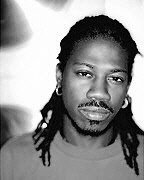 Yoruba folk music is renowned for its advanced drumming. Although there are a plethora of drums the music is based mainly around the use of hourglass-shaped tension drums or dundun. It is this music that forms the basis of the West-African influence in diasporic musical styles typical of Latin America, the Caribbean and especially Cuba. The iyaalu is the lead drum used in a drumming ensemble; it is made to ‘talk’ in such a way that the sound of Yoruba, which is a tonal language, is skillfully imitated.
Yoruba folk music is renowned for its advanced drumming. Although there are a plethora of drums the music is based mainly around the use of hourglass-shaped tension drums or dundun. It is this music that forms the basis of the West-African influence in diasporic musical styles typical of Latin America, the Caribbean and especially Cuba. The iyaalu is the lead drum used in a drumming ensemble; it is made to ‘talk’ in such a way that the sound of Yoruba, which is a tonal language, is skillfully imitated.
The music is largely devotional in that spirituality and ancestor worship lies at the core of Yoruba musical expression. The complex religious and philosophical system of the Yorubas date back thousands of years and, as a result of diaspora, has become influential throughout the Caribbean, many areas of Latin America and increasingly in North America and Europe. Believers consult divination specialists or ‘keepers of the secrets’, known as babalawo in order to commune with the spirit world. This practice and the philosophy associated with it, is known as Ifa.
As well as being inseparable from traditional spirituality, Yoruba folk music in its various forms is inseparable from regional distinctions within Yoruba land. In metropolitan cities European as well as Islamic and other Christian influences have been brought to bear in distinctive ways leading to the formation of more popular genres such as highlife, juju, Fuji and Afro-beat.
Track Listing:
1. Ninu Opon Ori Tiwa - 4:24 listen
2. Olukumi - 3:40 listen
3. Enia Lasoo Mi - 3:54 listen
4. Ifanla - 2:13 listen
5. Ori Ni Kan - 6:25
6. Witch Dance - 3:45
7. Seegesi Olooya - 4:54
8. Boya Iro Ni - 6:58 listen
9. Kulumbu Yeye - 3:08
10. Ojo To Wa Ninu Ose - 1:30
11. Aro Orunmila - 6:34
Wednesday, November 07, 2007
Yoruba Music and Culture
Labels: mpthrees
Subscribe to:
Post Comments (Atom)

































No comments:
Post a Comment